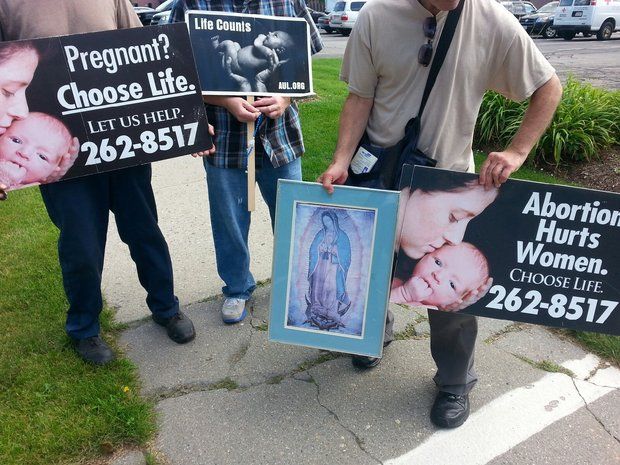With almost unprecedented speed, the Massachusetts Senate passed a bill Wednesday night that was written after the Supreme Court threw out the state’s abortion clinic buffer zone law. The unanimous voice vote came just hours after the bill cleared a legislative committee.
Three weeks ago, the Supreme court tossed out Massachusetts’ law establishing a 35-foot protest-free zone around abortion clinics.
Speaking at a Beacon Hill hearing, Boston Police Commissioner Billy Evans says protestors have already become more violent since the high court’s ruling. He described the scene outside a Planned Parenthood clinic in Boston.
“The old behavior was back, as far as women walking up to the clinic being screamed at in their faces when they were approaching the clinic, when they were leaving the clinic, being dogged when they went down Alcorn street, which is a side street.”
And this is not an isolated incident, according to Marty Walz, executive director of Planned Parenthood Massachusetts.
“Our patients are confronted with a scary environment with little sense of safety and security,” Walz said.
Eleanor McCullen says that’s an exaggeration. She’s an anti-abortion protester and was the lead petitioner in the Supreme Court Case.
“Ninety-nine percent, if you ever come over, we have loving people. Everybody is,” McCullen says. “There’s always, I guess, one little person that maybe gets too emotional.”
Regardless, top Democrats and Planned Parenthood [OR abortion rights groups] wrote a new bill to replace the old buffer zone law. It would give police the power to disperse protesters who block access to a clinic…and then order them to stay at least 25 feet away from the facility for up to eight hours.
Opponents, including McCullen, say the proposal is vague and gives police too much discretion.
“If this passes will I go back to court? Yes! Because it’s unconstitutional.”
Governor Deval Patrick, whose office helped draft the new bill, claims it follows the roadmap the Supreme Court itself set out in its opinion. Still, the governor knows where this is all headed.
“You know as well as I do that these are issues that people have strong passions about on both sides, and there probably will be litigation,” Patrick told reporters.
Clearly, House and Senate have put the replacement buffer zone bill on a fast track. They’re rushing to get it on the governor’s desk before the end of the legislative session on July 31st.
